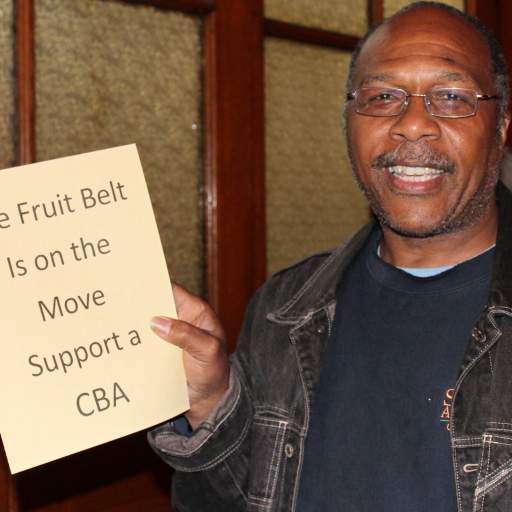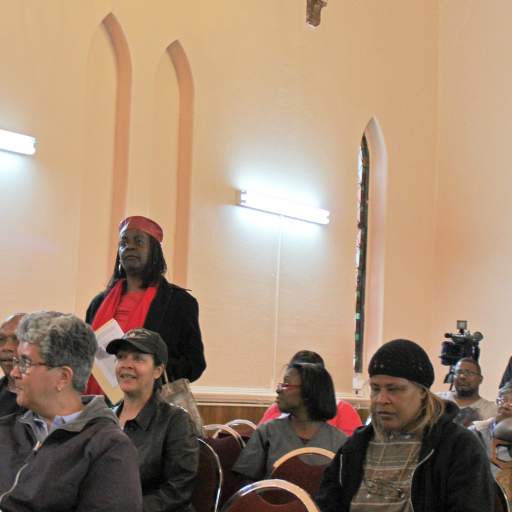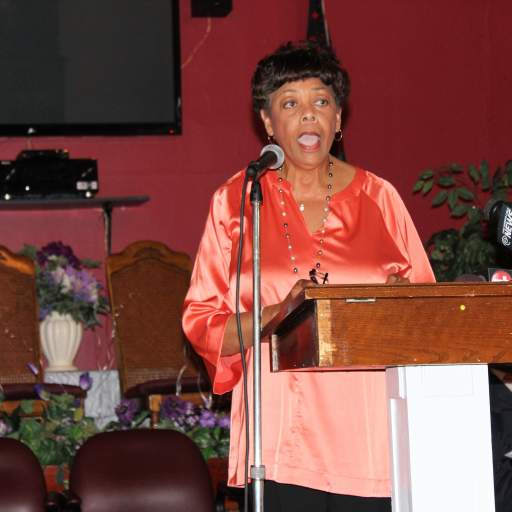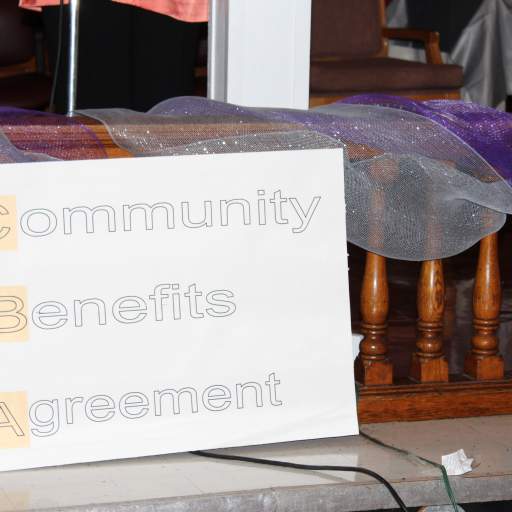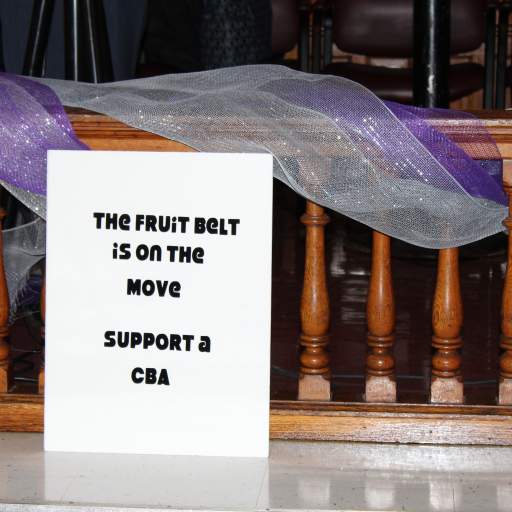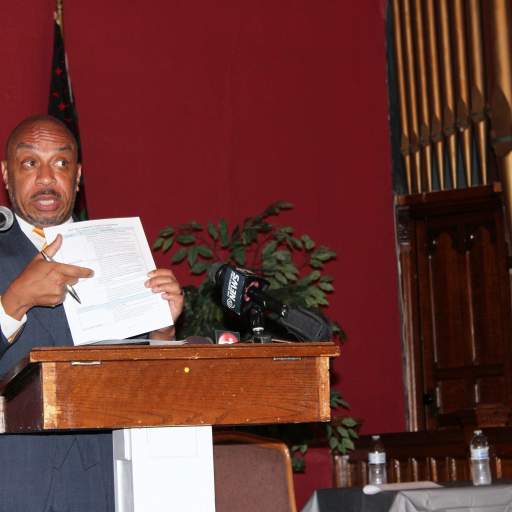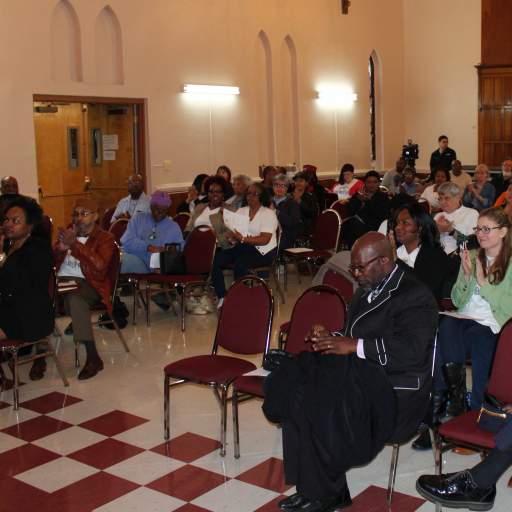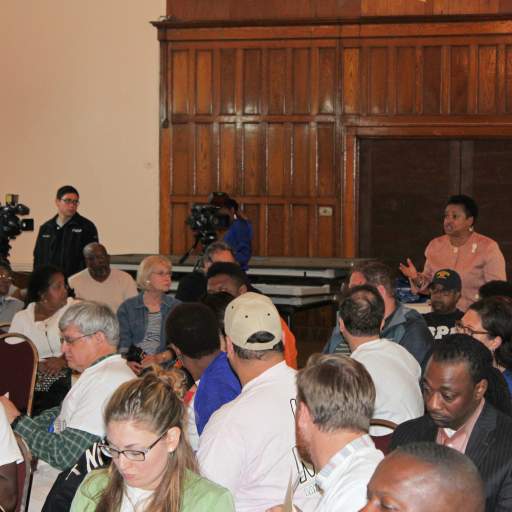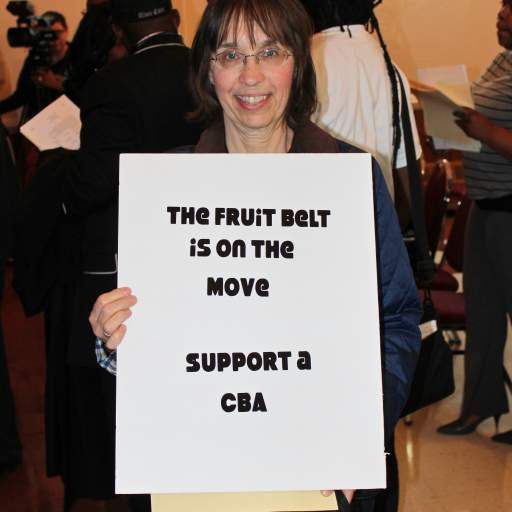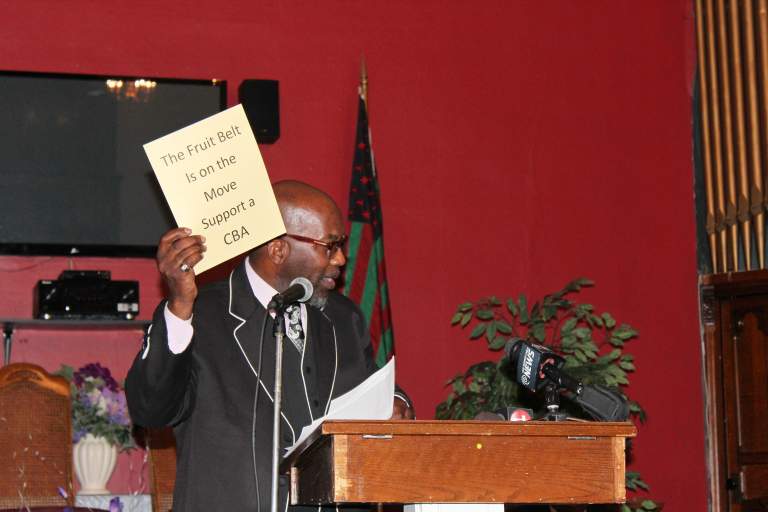
Pastor Alan Core, President of the Fruit Belt Advisory Council, presents the community's wish list at a May 4 meeting convened by Common Council President Darius Pridgen.
A Monumental Presentation in the Fruit Belt
Published May 5, 2015
On the evening of Monday, May 4, friends and staff of Open Buffalo gathered at Gethsemane Baptist Church on Grape Street to attend a community meeting on gentrification in the Fruit Belt neighborhood, called by Buffalo Common Council President Darius G. Pridgen.
Gentrification — an influx of wealthier businesses and residents into a previously lower-income community — is presently a hot-button topic in several Buffalo neighborhoods, including the Fruit Belt. Although gentrification has some benefits, like reducing blight and the improvement of neighborhood infrastructure, long-term neighborhood residents usually aren’t able to enjoy those benefits.
As Ruth Bryant, chairperson of the Willert Park Village Community Association, mentioned at the community meeting, gentrification usually results in the displacement of a neighborhood’s poor, African-American, and ethnic minority residents, who end up in less walkable neighborhoods with less access to public transit. Gentrification increases health disparities and reduces social ties, increasing crime and psychological health problems.
Over the course of many months, Fruit Belt residents have drafted elements of a Community Benefits Agreement (CBA) that would enable long-term neighborhood residents to benefit from economic development, and prevent displacement. At the May 4 meeting, Pastor Alan Core of First Centennial Baptist Church presented a draft of that CBA. Community wishes expressed in that draft include: preventing sprawl, ensuring that the Fruit Belt remains a mixed-income community, reducing unemployment and increasing minority- and women-owned businesses, investment in community infrastructure, involvement of local residents in a residential parking plan, and preservation of all neighborhood buildings and historic landmarks.
“This is very good!” Council President Pridgen proclaimed, holding the CBA draft in the air. Although he did not guarantee that every community request in the CBA would be met, he mentioned that he had already met some of the listed demands, such as a moratorium on the sale of public property within the Fruit Belt; and would work on other demands immediately, such as keeping property tax rates at 2015 levels for current Fruit Belt homeowners. Pridgen went on to say that, once some additional concerns mentioned by residents present at the community meeting had been integrated into the document, he would be prepared to present it to the Office of Strategic Planning and enter it into the public record.
Open Buffalo Executive Director Franchelle Hart closed the meeting by thanking the residents of the Fruit Belt for pioneering the first CBA of its kind for the city of Buffalo. If this CBA is implemented, she reminded the gathering, it will become a model for equitable economic development all over the city.
